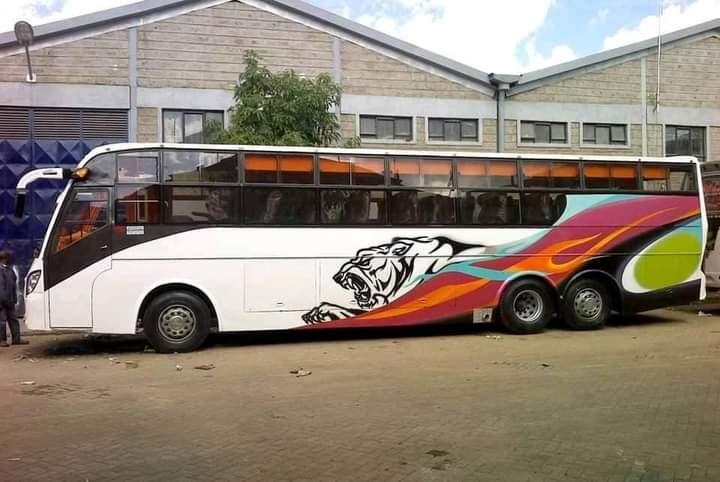In Kenya, road safety remains a critical concern, with the National Transport and Safety Authority (NTSA) playing a pivotal role in ensuring vehicles meet stringent safety standards. Under Section 4 of the NTSA Act No. 33 of 2012, as outlined in the Traffic Act (CAP 403), the NTSA is mandated to regulate and enforce road safety measures across the country. A key component of this mandate is the enforcement of KS 372:2019, a standard that governs the construction, design, and assembly of motor vehicle bodies to ensure they are safe, reliable, and fit for purpose.
The KS 372:2019 standard sets rigorous requirements for approved vehicle body builders in Kenya, emphasizing high-quality materials, robust designs, and meticulous assembly processes. These standards are crucial for enhancing passenger safety and reducing road accidents, which have been a persistent challenge in Kenya due to factors like poor road networks, reckless driving, and inadequate regulatory frameworks. This article provides a comprehensive guide to the NTSA-approved vehicle body builders in Kenya as of August 2025, offering insights into their roles, the importance of compliance, and how these standards contribute to safer roads.
The Role of NTSA in Regulating Vehicle Body Builders
The NTSA’s oversight of vehicle body builders is a cornerstone of its mission to enhance road safety. By enforcing KS 372:2019, the Authority ensures that all commercial vehicles, including buses, matatus, and trucks, are constructed to withstand the demands of Kenya’s diverse road conditions. This involves:
- Material Quality: Using durable, high-grade materials to ensure structural integrity.
- Design Standards: Adhering to specifications that enhance vehicle stability and passenger safety.
- Assembly Processes: Implementing rigorous quality control to prevent defects that could compromise safety.
- Compliance Monitoring: Regular inspections and certifications to ensure ongoing adherence to standards.
This regulatory framework not only protects passengers but also supports the growth of a professional vehicle body building industry in Kenya, fostering trust among transport operators and the public.
List of NTSA Approved Vehicle Body Builders in Kenya (August 2025)
Below is the official list of NTSA-approved motor vehicle body builders in Kenya as of August 2025, as provided by the NTSA. These companies have been vetted to ensure compliance with KS 372:2019, guaranteeing that their vehicle bodies meet the highest safety and reliability standards.
| S/NO | Name of Company | Address (P.O Box) | County |
|---|---|---|---|
| 1 | A&G Automotive | 1111 – 20300 | Nyahururu |
| 2 | Associated Vehicle Assemblers Limited | 86344 | Mombasa |
| 3 | ATL Trailers Limited | 83237 | Mombasa |
| 4 | Banbros Limited | 76511 – 0508 | Machakos |
| 5 | Black Sparks Fabricators Limited | 7508-30100 | Mombasa & Eldoret |
| 6 | Blessed Hand Auto Garage | 443 – 10100 | Nyeri |
| 7 | Boditeq Engineers Limited | 22064 – 00100 | Nairobi |
| 8 | CAC & Accessories Limited | 13224 – 00100 | Machakos |
| 9 | Central Farmers Garage Limited | 30789 – 00100 | Nairobi |
| 10 | Dajotech Holdings Limited | 363661 – 002000 | Nairobi |
| 11 | East Africa Coach Manufacturers Limited | 17993 | Nairobi |
| 12 | Gikondi Fabricators | 31271 – 00600 | Nairobi |
| 13 | Hadiid Industries Limited | 28919 – 00100 | Nairobi |
| 14 | Hi Techz Motors | 373 | Voi |
| 15 | Highway Car Cushion & Upholstery Limited | 53805 – 00200 | Nairobi |
| 16 | Himat Fabricators | 2266 – 00621 | Nairobi |
| 17 | Identity Fabricator | 605 – 00610 | Nairobi |
| 18 | Inter-Diesel Works Limited | 84583 | Mombasa |
| 19 | Island Spray Painters Limited | 91094 – 80108 | Nairobi |
| 20 | Jasraj Enterprises Limited | 18354 – 00500 | Nairobi |
| 21 | Jome-Tech Fabricators | 14554 – 00400 | Kiambu-Ruiru |
| 22 | Kenya Coach Industries | 18354 – 00500 | Nairobi |
| 23 | Kenyan Vehicle Manufacturers Limited | 18868 – 00500 | Kiambu-Thika |
| 24 | Kisumu Mpya | 7271 | Kisumu |
| 25 | Konyango Metal Eng. Limited | 40100 – 7134 | Kisumu |
| 26 | Masters Fabricators Limited | 48644 – 00100 | Machakos |
| 27 | Megh Cushions Industries | 18523 – 00500 | Nairobi |
| 28 | Megh Sing Cushion | 42747 – 00100 | Nairobi |
| 29 | Metal Equipment Co. Limited | 45291 – 00100 | Nairobi |
| 30 | Metonia Enterprises Limited | 1322 – 00606 | Nairobi |
| 31 | Modern Cushions Industries | 47627 – 00100 | Nairobi |
| 32 | Morgan Steel Works | 31414 – 00600 | Nairobi |
| 33 | Mystive Limited | 60200 | Meru |
| 34 | Nanak Fabricators | 402 – 00204 | Nairobi |
| 35 | Nicco Movers Limited | 4705 – 0050 | Kiambu-Ruiru |
| 36 | Plateau Motors | 45558 – 00100 | Machakos |
| 37 | Quicksand Construction Limited | 198 | Nairobi |
| 38 | Sahota Body Works Limited | 2166 – 20100 | Nakuru |
| 39 | Sai Raj Limited | 43490 – 00100 | Nairobi |
| 40 | Smart Fab Enterprises | 3580 – 01002 | Kiambu-Thika |
| 41 | Smart Tech Auto Centre | 963 | Nairobi |
| 42 | Yutan Limited | 6913 – 00200 | Machakos |
Note: The KS 372:2019 standard is available on the Kenya Bureau of Standards website for detailed reference.
Why Choose an NTSA-Approved Vehicle Body Builder?
Opting for an NTSA-approved vehicle body builder ensures compliance with national safety standards, which is critical for both transport operators and passengers. Here’s why:
- Enhanced Safety: Vehicles built to KS 372:2019 standards are designed to minimize risks, such as rollovers or structural failures, which are common causes of accidents in Kenya.
- Regulatory Compliance: Using approved builders ensures vehicles pass NTSA inspections, avoiding fines or operational bans.
- Durability and Reliability: High-quality materials and construction techniques result in vehicles that withstand Kenya’s challenging road conditions, from urban congestion to rural terrain.
- Passenger Confidence: Matatus and buses built by approved builders inspire trust among passengers, boosting business for operators.
For example, companies like Associated Vehicle Assemblers Limited and Kenya Coach Industries have built reputations for delivering robust, safe vehicle bodies that meet NTSA standards, making them preferred choices for public service vehicle (PSV) operators.
The Importance of KS 372:2019 in Vehicle Body Building
The KS 372:2019 standard is a comprehensive guideline that addresses every aspect of vehicle body construction. Its key components include:
- Structural Integrity: Ensures vehicle bodies can withstand impacts and stresses without compromising passenger safety.
- Material Specifications: Mandates the use of certified materials that resist corrosion and wear, crucial for Kenya’s humid coastal regions and dusty upcountry roads.
- Safety Features: Requires features like emergency exits, fire-resistant upholstery, and underride protection devices, as proposed in recent NTSA regulations.
- Quality Control: Enforces rigorous testing and inspection protocols during and after construction.
By adhering to these standards, approved body builders contribute to reducing road accidents, which have been a significant concern in Kenya, as noted in discussions about reckless driving and poor road networks.
Challenges Facing Vehicle Body Builders in Kenya
Despite the progress made by NTSA in regulating the industry, vehicle body builders face several challenges:
- Cost of Compliance: High-quality materials and adherence to KS 372:2019 can be expensive, particularly for smaller firms like Blessed Hand Auto Garage or Gikondi Fabricators.
- Competition: The presence of unapproved builders offering cheaper services undermines the market for compliant companies.
- Technological Advancements: Keeping up with evolving standards, such as the proposed underride protection devices, requires continuous investment in skills and equipment.
- Regional Disparities: Builders in remote areas, like Kisumu Mpya or Mystive Limited in Meru, may face logistical challenges in accessing certified materials or NTSA inspection centers.
Addressing these challenges requires collaboration between NTSA, the Kenya Bureau of Standards, and industry stakeholders to provide training, subsidies, and streamlined certification processes.
How to Verify an NTSA-Approved Vehicle Body Builder
Transport operators and individuals seeking vehicle body building services should verify the credentials of a builder to ensure compliance. Here’s how:
- Check the NTSA List: Refer to the official NTSA website or publications, such as the list provided above, to confirm a builder’s approval status.
- Request Certification: Ask for proof of compliance with KS 372:2019, including material certifications and inspection reports.
- Visit the Facility: Inspect the builder’s workshop to assess their equipment, processes, and adherence to safety standards.
- Consult NTSA: Contact NTSA directly or visit an inspection center, such as the Likoni center mentioned in a recent compliance assessment, for verification.
By following these steps, operators can avoid substandard services that could lead to safety risks or regulatory penalties.
The Future of Vehicle Body Building in Kenya
The vehicle body building industry in Kenya is poised for growth, driven by increasing demand for safe, reliable public transport vehicles. Several trends and developments are shaping its future:
- Technological Innovation: Builders like Dajotech Holdings Limited and Boditeq Engineers Limited are adopting advanced fabrication techniques, such as automated welding and CAD design, to enhance precision and efficiency.
- Sustainability: There’s a growing emphasis on eco-friendly materials and processes, aligning with global trends toward sustainable transport.
- Infrastructure Development: Projects like the Ngong Road–Naivasha Road Flyover will increase demand for high-quality commercial vehicles, benefiting approved builders.
- Regional Expansion: Companies like Black Sparks Fabricators Limited, operating in both Mombasa and Eldoret, are expanding their reach to serve diverse markets.
The NTSA’s ongoing efforts to enforce standards and introduce new safety features, such as underride protection devices, will further elevate the industry’s standards, making Kenya’s roads safer for all.
The NTSA’s regulation of vehicle body builders through KS 372:2019 is a critical step toward improving road safety in Kenya. By choosing from the 42 approved builders listed above, transport operators can ensure their vehicles meet the highest standards of safety, reliability, and durability. As Kenya continues to address road safety challenges, highlighted by discussions on X about accidents and regulatory gaps, the role of approved vehicle body builders cannot be overstated. Their commitment to quality craftsmanship is essential for protecting passengers, supporting the transport industry, and contributing to a safer, more reliable road network.
For more information on KS 372:2019 or to verify a vehicle body builder’s credentials, visit the Kenya Bureau of Standards website or contact NTSA directly.





